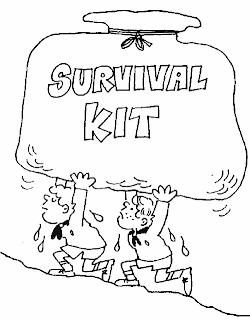At a once-upon-a-time family gathering, youngsters huddled up to discuss our latest fads - the recent Aamir/ Shahrukh blockbuster that hit the screens (Indian superstars they are, but to death-do-us-apart fans, they are heart-throbs over whom there could be unto-death-of-the-vocal-chords debates!); or, the most recent 'hobbies' ... Which brings us to the point where the blogger can finally begin this blog post- phew!
There was a kid who had gained an interest in palm-reading. The blogger put forward her palm to be inspected and the kid-astrologer said - 'You act like a spring. Sometimes you are bugged down so much that you can crumble to dust, and the next day you can be jumping out of the pandora's box'. The blogger remained unimpressed since the kid was a cousin who knew her well enough to make such observations.
The blogger continues to remain unimpressed about the expression of the kid-astrologer till date. However, she has been intrigued by this peculiar springy character of hers. Like the millions of people across the globe, like you, my dear friend, she wanted to know herself better. But there was no light at the end of the tunnel as such. The truth is, there was no tunnel as such either.
There was a kid who had gained an interest in palm-reading. The blogger put forward her palm to be inspected and the kid-astrologer said - 'You act like a spring. Sometimes you are bugged down so much that you can crumble to dust, and the next day you can be jumping out of the pandora's box'. The blogger remained unimpressed since the kid was a cousin who knew her well enough to make such observations.
The blogger continues to remain unimpressed about the expression of the kid-astrologer till date. However, she has been intrigued by this peculiar springy character of hers. Like the millions of people across the globe, like you, my dear friend, she wanted to know herself better. But there was no light at the end of the tunnel as such. The truth is, there was no tunnel as such either.




